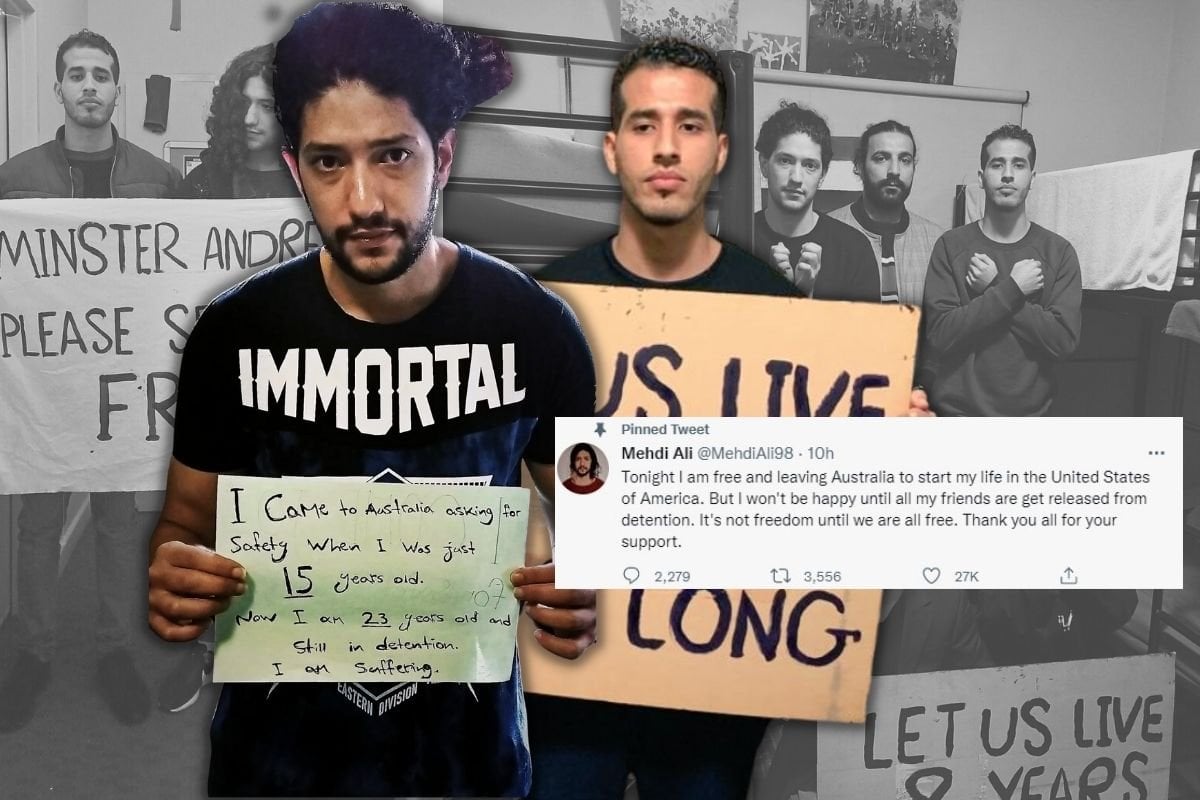
Cousins Mehdi Ali and Adnan Choopani arrived on Australian soil aged 15 and 16 after a treacherous boat journey.
They'd fled from Iran where they faced systemic oppression as members of the Ahwazi Arab minority.
When they got here, they were sent to Christmas Island where they remained for nine months, before being shunted from detention facility to detention facility both on and offshore. They'd end up staying locked up - their only crime seeking a safe place to live - for nine whole years.
Watch: A message from Medhi, Adnan and their friends. Post continues after video.
On Thursday night, the now 24 and 25-year-old men announced they'd suddenly been set free. Their stories were catapulted onto a global media stage in January when world tennis No.1 Novak Djokovic found himself in their latest prison - a Melbourne hotel.
But they're not free to roam the streets of Australia. Instead, they're headed to America to start their new lives.
This is their story.
The life they fled.
Ahwazi Arabs are one of Iran's most persecuted minorities.

Top Comments